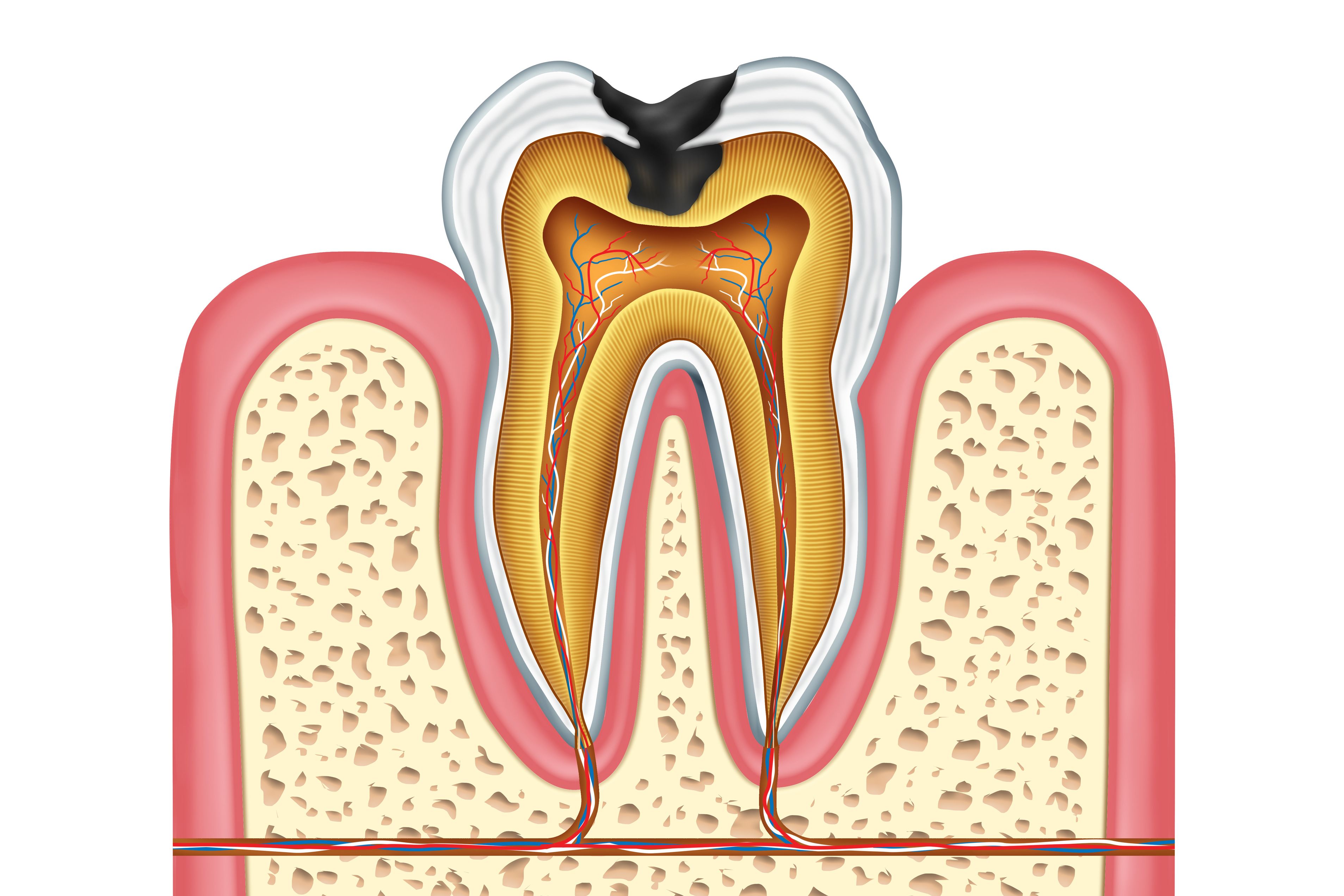Treatment for Cavities
 Tooth decay, also known as cavities or caries, is caused by a buildup of plaque on our teeth, which is composed of bacteria. If this plaque is left on our teeth (i.e. not removed by brushing our teeth), it will begin to damage the tooth enamel. Once the enamel breaks down, the bacteria have access to the inner layers of your tooth. The bacteria create a hole, or cavity in the tooth, and continues to do so until treatment is sought. At 38th Street Dental in Austin, TX, we offer both preventive and restorative dentistry treatments for cavities.
Tooth decay, also known as cavities or caries, is caused by a buildup of plaque on our teeth, which is composed of bacteria. If this plaque is left on our teeth (i.e. not removed by brushing our teeth), it will begin to damage the tooth enamel. Once the enamel breaks down, the bacteria have access to the inner layers of your tooth. The bacteria create a hole, or cavity in the tooth, and continues to do so until treatment is sought. At 38th Street Dental in Austin, TX, we offer both preventive and restorative dentistry treatments for cavities.
Preventing Cavities
Diligent oral care can prevent cavities. In addition to brushing twice each day and flossing once per day, we recommend patients maintain a diet rich in vegetables and fruits and low in processed foods like breads, pastas, and candies. Unfortunately, that alone may not be enough to prevent tooth decay.
In addition to maintaining a healthy diet and a good at-home oral care routine, patients also need regular professional cleanings and checkups. We recommend that patients schedule their dental cleanings and exams twice per year. This allows us to remove the plaque that builds up in hard-to-reach places and catch cavities in their early stages. The earlier we spot a cavity, the less invasive treatments we can use.
Restorative Treatment for Cavities
The type of treatment we recommend will depend on the extent of decay. For most minor to moderate cavities, fillings are the ideal treatment. When the decay is more severe, a patient may need a dental crown.
Dental Fillings
Dental fillings are a simple restorative treatment for cavities. We simply remove the decay from your tooth and fill it in with a composite resin material. This material is tooth-colored, so it will blend well with your tooth for a discreet look. Fillings are the preferred treatment because they preserve your healthy tooth structure.
Dental Crowns
We offer dental crowns in a variety of materials to meet your aesthetic goals and your budget. Most patients prefer porcelain or porcelain-fused-to-metal (PFM) options because they have the most natural appearance. To place a crown, we must not only remove the decay but also reshape your tooth to create space for the crown. The crown is custom-made to fit perfectly over your reshaped tooth for a comfortable fit. Dental crowns are more invasive and the treatment usually spans two appointments.
In limited cases, the tooth decay is too severe for a dental crown. When this is the case, we may recommend extracting the tooth and replacing it with either a traditional dental bridge or a dental implant and implant-supported crown. Most patients who maintain their oral health can avoid the need for extraction.
Contact Us Today
If you have noticed any pain or sensitivity in a particular tooth, especially when biting down, you may have a cavity. Contact our office today to schedule an appointment. We will thoroughly examine the tooth to determine whether a filling or crown is needed to restore its function.



